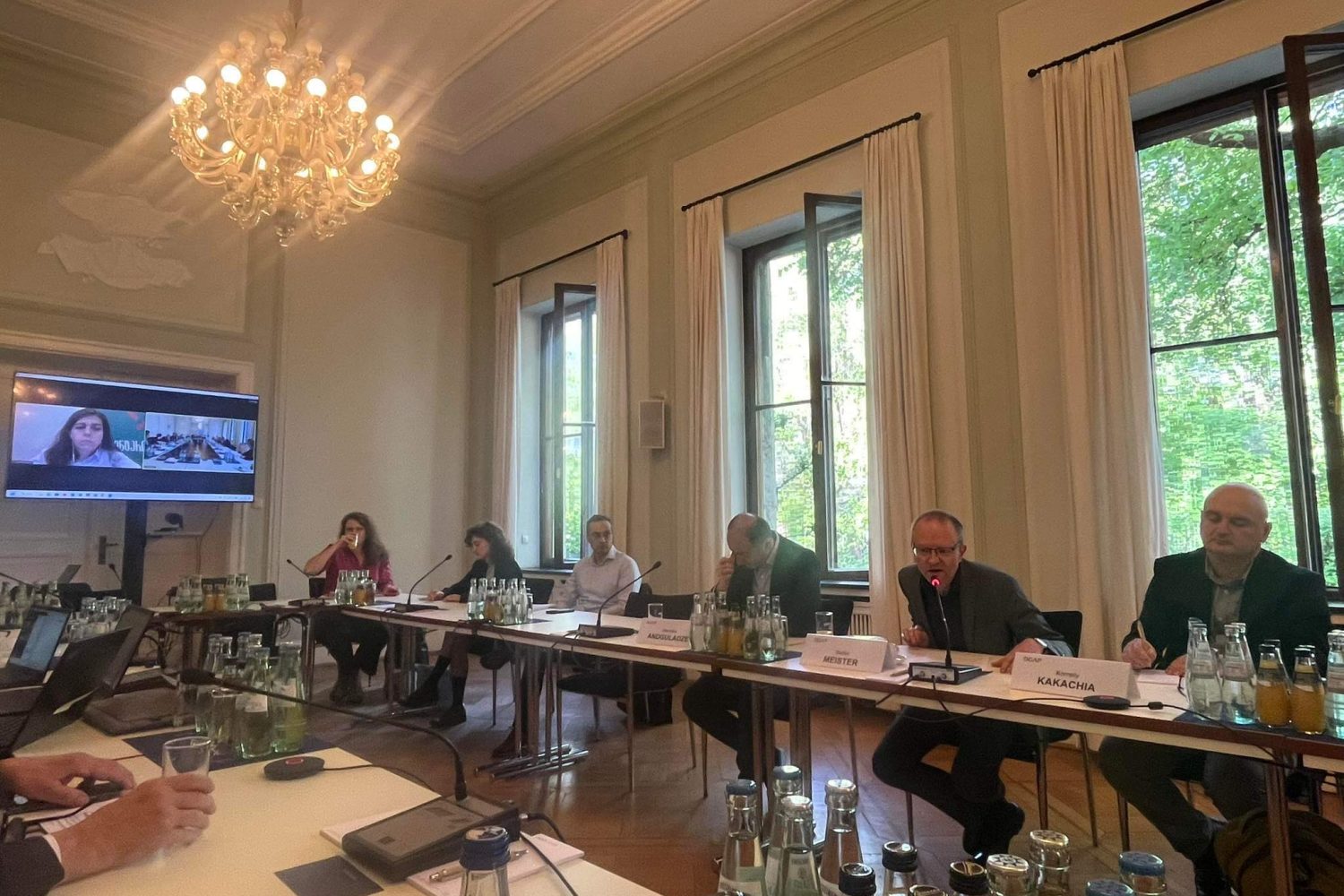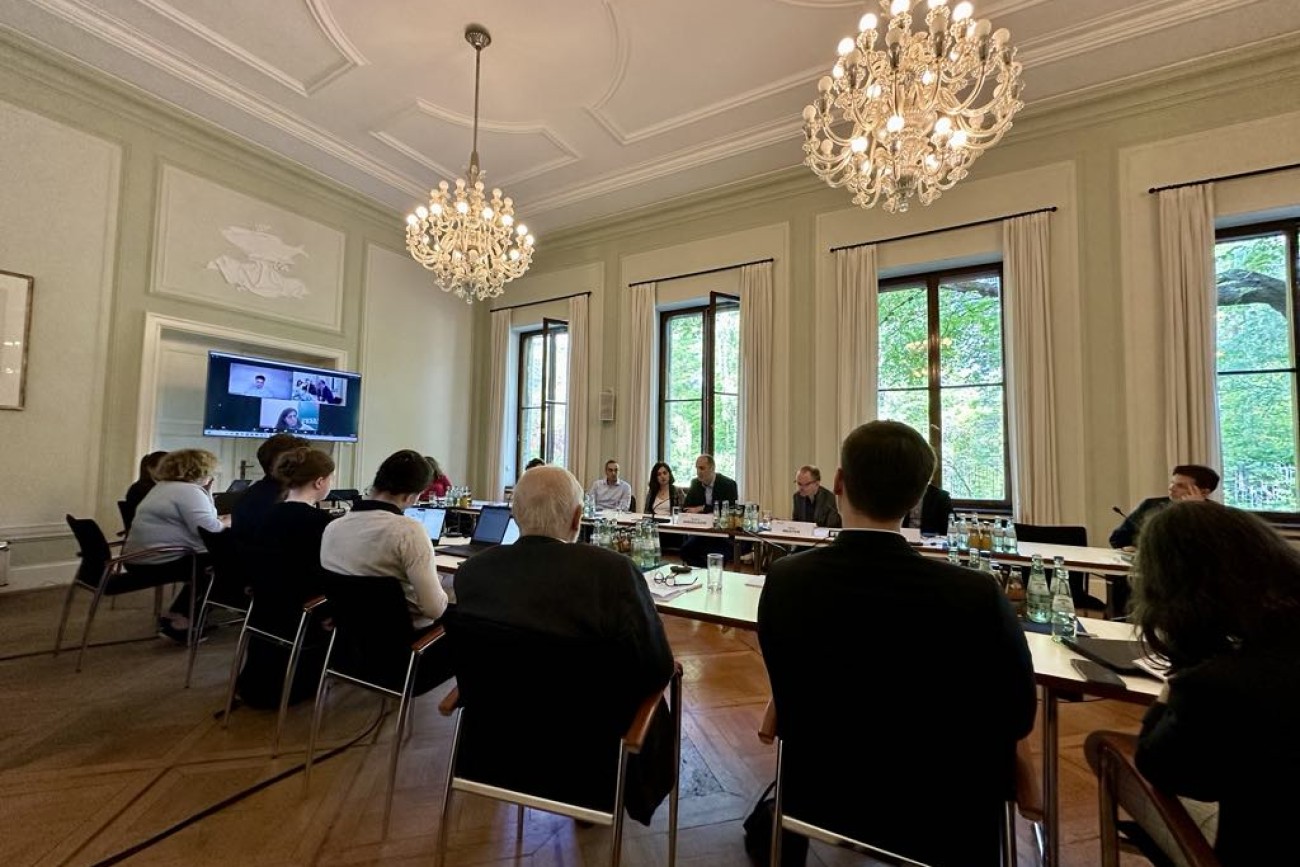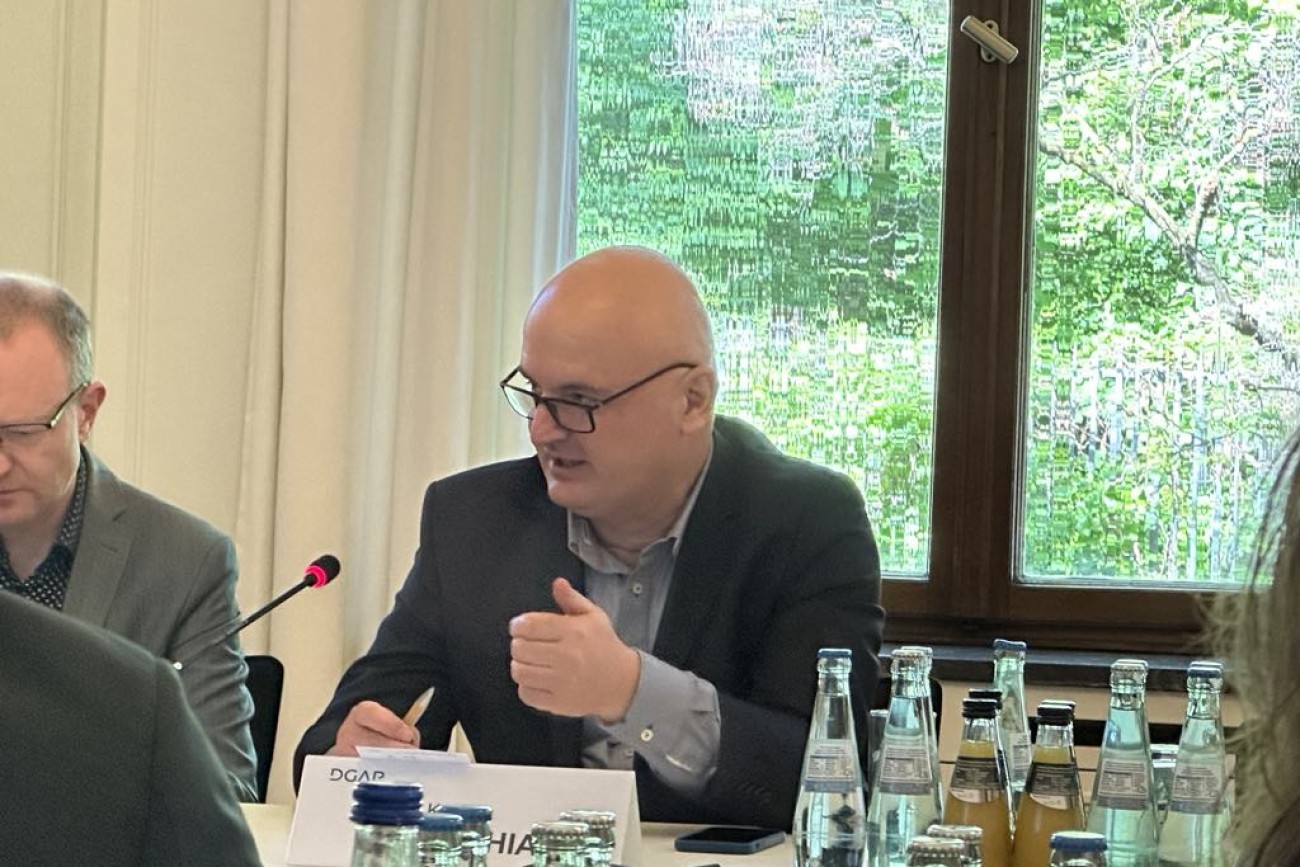On April 30, the Georgian Institute of Politics co-organized a roundtable discussion titled “Georgia’s (Non-)Alignment with the EU,” hosted by the German Council on Foreign Relations (DGAP) in Berlin, Germany.
A panel discussion assessed the challenges of Georgia’s journey toward European integration amidst growing concerns over recent legislative moves. Georgia is a key country in the EU’s Eastern neighborhood, which Georgia has been officially steering towards EU membership. However, recent actions by the ruling Georgian Dream party have raised doubts about the country’s true commitment to this path.
The introduction of laws on media and LGBT rights by the Georgian Dream party has triggered domestic and international debates. Now, with a second attempt to pass a foreign agent law, apprehensions are mounting over the potential impact on civil society and media organizations. This law would label any civil society or media organization that received at least 20 percent of its funding from outside Georgia as “carrying out the interests of a foreign power.” This move has sparked concerns about the erosion of freedom of expression and the stifling of dissenting voices within Georgia.
Against the backdrop of Georgia’s vulnerabilities to Russian influence, exacerbated by the conflict in Ukraine, the panelists addressed the implications of Georgia’s shifting alignment away from EU foreign and security policies. Prof. Kornely Kakachia, Director of the Georgian Institute of Politics and the Jean Monnet Chair at Ivane Javakhishvili Tbilisi State University, presented the findings of the policy paper on Georgia’s alignment with the EU’s common security and foreign policy (CFSP). The discussion featured a panel of experts, including Sopho Verdzeuli, Co-founder and Editor, Komentari (online), and Mamuka Andguladze, Chair, Media Advocacy Coalition. Commentary on the experts’ inputs was provided by Robin Wagener, Coordinator for Intersocietal Cooperation with the Southern Caucasus, the Republic of Moldova, and Central Asia, German Federal Foreign Office, Member of the German Bundestag (online).
Given these significant developments, a panel discussion critically assessed Georgia’s direction in the lead-up to its crucial parliamentary election in October. The panel moderated by Stefan Meister, Head of the Center for Order and Governance in Eastern Europe, Russia, and Central Asia, at the German Council on Foreign Relations (DGAP), focused on foreign policy, civil society, and the media, highlighting the importance of these aspects in shaping Georgia’s future.




